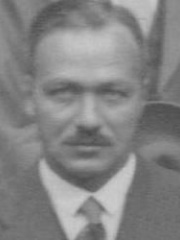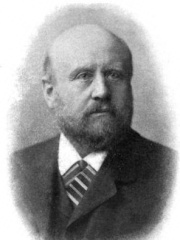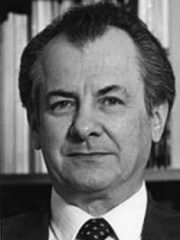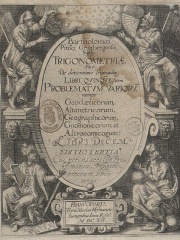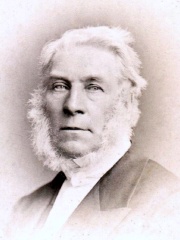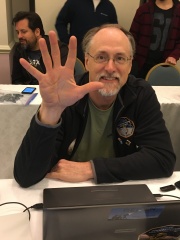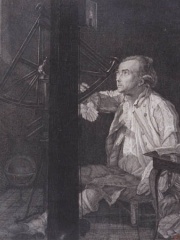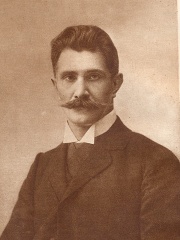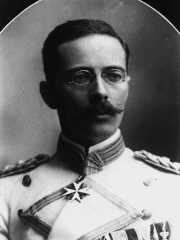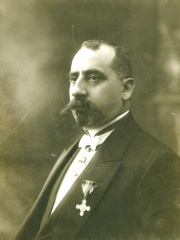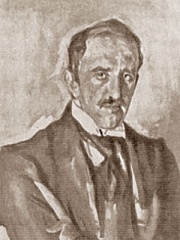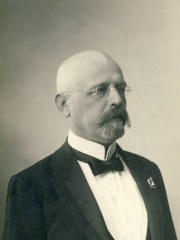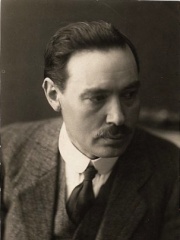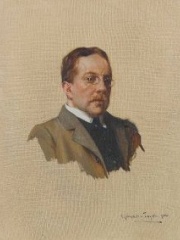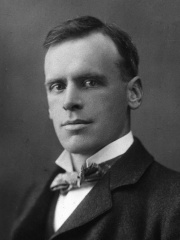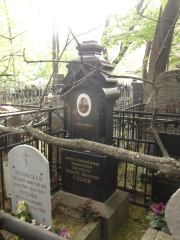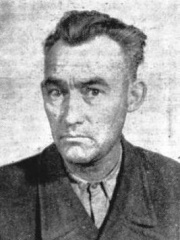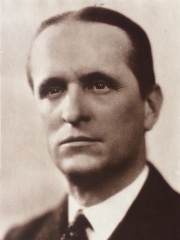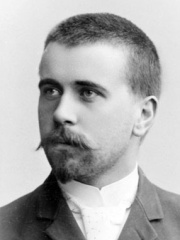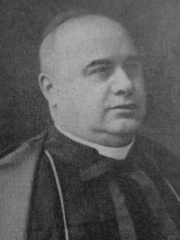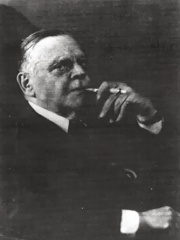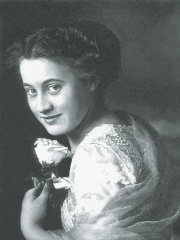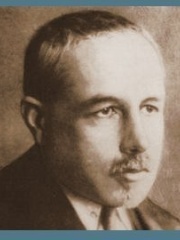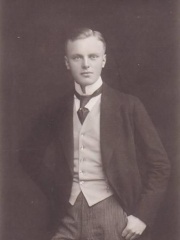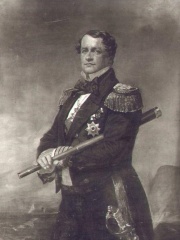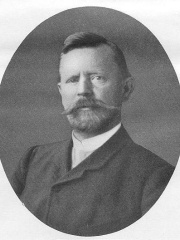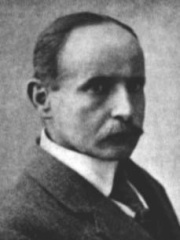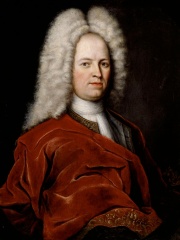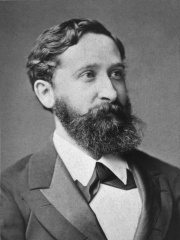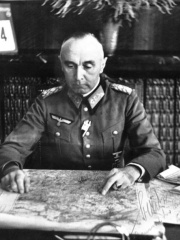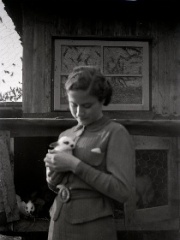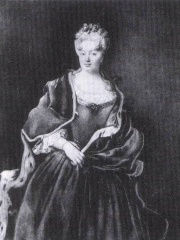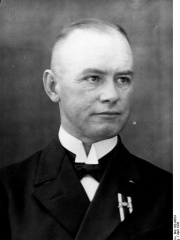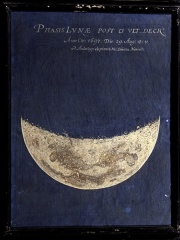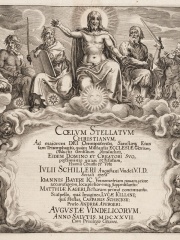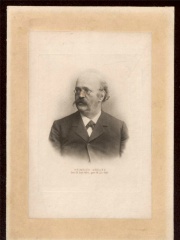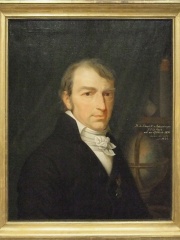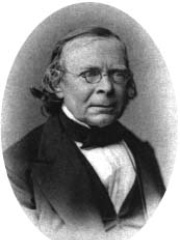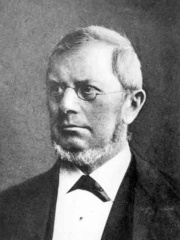Astronomer
Carl Gustav Witt
1866 - 1946
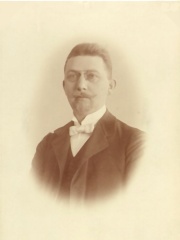
 Carl Gustav Witt
Carl Gustav Witt
Carl Gustav Witt (29 October 1866 – 3 January 1946) was a German astronomer and discoverer of two asteroids who worked at the Berlin Urania Observatory, a popular observatory of the Urania astronomical association of Berlin. He wrote a doctoral thesis under the direction of Julius Bauschinger. Witt discovered two asteroids, most notably 433 Eros, the first asteroid with a male name, and the first known near-Earth object. His first minor planet discovery was the main-belt asteroid 422 Berolina, that bears the Latin name of his adoptive city. Read more on Wikipedia
His biography is available in 22 different languages on Wikipedia. Carl Gustav Witt is the 349th most popular astronomer (down from 302nd in 2024), the 3,601st most popular biography from Germany (down from 3,528th in 2019) and the 53rd most popular German Astronomer.
Memorability Metrics
Page views of Carl Gustav Witt by language
Among Astronomers
Among astronomers, Carl Gustav Witt ranks 349 out of 644. Before him are Fang Lizhi, Rudolph Minkowski, Hugo von Seeliger, Walter Lewin, Carl A. Wirtanen, and Gérard de Vaucouleurs. After him are Bartholomaeus Pitiscus, James Glaisher, Cyril Jackson, Heikki A. Alikoski, Marc William Buie, and Antoine Darquier de Pellepoix.
Most Popular Astronomers in Wikipedia
Go to all RankingsFang Lizhi
1936 - 2012
HPI: 59.29
Rank: 343
Rudolph Minkowski
1895 - 1976
HPI: 59.28
Rank: 344
Hugo von Seeliger
1849 - 1924
HPI: 59.25
Rank: 345
Walter Lewin
1936 - Present
HPI: 59.25
Rank: 346
Carl A. Wirtanen
1910 - 1990
HPI: 59.24
Rank: 347
Gérard de Vaucouleurs
1918 - 1995
HPI: 59.22
Rank: 348
Carl Gustav Witt
1866 - 1946
HPI: 59.20
Rank: 349
Bartholomaeus Pitiscus
1561 - 1613
HPI: 59.18
Rank: 350
James Glaisher
1809 - 1903
HPI: 59.09
Rank: 351
Cyril Jackson
1903 - 1988
HPI: 59.08
Rank: 352
Heikki A. Alikoski
1912 - 1997
HPI: 59.05
Rank: 353
Marc William Buie
1958 - Present
HPI: 59.02
Rank: 354
Antoine Darquier de Pellepoix
1718 - 1802
HPI: 58.96
Rank: 355
Contemporaries
Among people born in 1866, Carl Gustav Witt ranks 87. Before him are Paul Lincke, Ignacy Daszyński, Gustav Adolf von Götzen, Andrey Lyapchev, Paolo Troubetzkoy, and Tristan Bernard. After him are Jaan Poska, Janis Rozentāls, E. W. Hornung, Tilemachos Karakalos, Ernest Starling, and Kuroda Seiki. Among people deceased in 1946, Carl Gustav Witt ranks 128. Before him are Paul Lincke, Alexey Sudayev, Erwin Rösener, François de La Rocque, Ernst Leonard Lindelöf, and Camillo Caccia Dominioni. After him are Albert Sechehaye, Ioannis Rallis, Dorothy Gibson, I Gusti Ngurah Rai, Maximilian Steinberg, and Georg, Prince of Saxe-Meiningen.
Others Born in 1866
Go to all RankingsPaul Lincke
COMPOSER
1866 - 1946
HPI: 59.77
Rank: 81
Ignacy Daszyński
POLITICIAN
1866 - 1936
HPI: 59.66
Rank: 82
Gustav Adolf von Götzen
EXPLORER
1866 - 1910
HPI: 59.66
Rank: 83
Andrey Lyapchev
POLITICIAN
1866 - 1933
HPI: 59.56
Rank: 84
Paolo Troubetzkoy
SCULPTOR
1866 - 1938
HPI: 59.39
Rank: 85
Tristan Bernard
WRITER
1866 - 1947
HPI: 59.33
Rank: 86
Carl Gustav Witt
ASTRONOMER
1866 - 1946
HPI: 59.20
Rank: 87
Jaan Poska
POLITICIAN
1866 - 1920
HPI: 59.15
Rank: 88
Janis Rozentāls
PAINTER
1866 - 1916
HPI: 59.09
Rank: 89
E. W. Hornung
WRITER
1866 - 1921
HPI: 58.97
Rank: 90
Tilemachos Karakalos
POLITICIAN
1866 - 1951
HPI: 58.96
Rank: 91
Ernest Starling
PHYSICIAN
1866 - 1927
HPI: 58.88
Rank: 92
Kuroda Seiki
PAINTER
1866 - 1924
HPI: 58.88
Rank: 93
Others Deceased in 1946
Go to all RankingsPaul Lincke
COMPOSER
1866 - 1946
HPI: 59.77
Rank: 122
Alexey Sudayev
ENGINEER
1912 - 1946
HPI: 59.55
Rank: 123
Erwin Rösener
MILITARY PERSONNEL
1902 - 1946
HPI: 59.54
Rank: 124
François de La Rocque
POLITICIAN
1885 - 1946
HPI: 59.53
Rank: 125
Ernst Leonard Lindelöf
MATHEMATICIAN
1870 - 1946
HPI: 59.40
Rank: 126
Camillo Caccia Dominioni
RELIGIOUS FIGURE
1877 - 1946
HPI: 59.20
Rank: 127
Carl Gustav Witt
ASTRONOMER
1866 - 1946
HPI: 59.20
Rank: 128
Albert Sechehaye
LINGUIST
1870 - 1946
HPI: 59.19
Rank: 129
Ioannis Rallis
POLITICIAN
1878 - 1946
HPI: 59.16
Rank: 130
Dorothy Gibson
ACTOR
1889 - 1946
HPI: 59.15
Rank: 131
I Gusti Ngurah Rai
MILITARY PERSONNEL
1917 - 1946
HPI: 59.15
Rank: 132
Maximilian Steinberg
COMPOSER
1883 - 1946
HPI: 59.02
Rank: 133
Georg, Prince of Saxe-Meiningen
POLITICIAN
1892 - 1946
HPI: 58.85
Rank: 134
In Germany
Among people born in Germany, Carl Gustav Witt ranks 3,603 out of 7,253. Before him are Prince Adalbert of Prussia (1811), Franz John (1872), Carl Humann (1839), Rudolf Schlechter (1872), Georg Heinrich von Görtz (1668), and Henriette Sontag (1806). After him are Adolf Bernhard Meyer (1840), Paul Bader (1883), Kornelia Ender (1958), Else Krüger (1915), Princess Johanna Charlotte of Anhalt-Dessau (1682), and Conrad Albrecht (1880).
Others born in Germany
Go to all RankingsPrince Adalbert of Prussia
POLITICIAN
1811 - 1873
HPI: 59.23
Rank: 3,597
Franz John
SOCCER PLAYER
1872 - 1952
HPI: 59.22
Rank: 3,598
Carl Humann
ARCHITECT
1839 - 1896
HPI: 59.22
Rank: 3,599
Rudolf Schlechter
BIOLOGIST
1872 - 1925
HPI: 59.22
Rank: 3,600
Georg Heinrich von Görtz
POLITICIAN
1668 - 1719
HPI: 59.20
Rank: 3,601
Henriette Sontag
SINGER
1806 - 1854
HPI: 59.20
Rank: 3,602
Carl Gustav Witt
ASTRONOMER
1866 - 1946
HPI: 59.20
Rank: 3,603
Adolf Bernhard Meyer
ANTHROPOLOGIST
1840 - 1911
HPI: 59.20
Rank: 3,604
Paul Bader
MILITARY PERSONNEL
1883 - 1971
HPI: 59.20
Rank: 3,605
Kornelia Ender
SWIMMER
1958 - Present
HPI: 59.20
Rank: 3,606
Else Krüger
POLITICIAN
1915 - 2005
HPI: 59.19
Rank: 3,607
Princess Johanna Charlotte of Anhalt-Dessau
POLITICIAN
1682 - 1750
HPI: 59.19
Rank: 3,608
Conrad Albrecht
MILITARY PERSONNEL
1880 - 1969
HPI: 59.19
Rank: 3,609
Among Astronomers In Germany
Among astronomers born in Germany, Carl Gustav Witt ranks 53. Before him are Brian G. Marsden (1937), Freimut Börngen (1930), Maria Clara Eimmart (1676), Franz Kaiser (1891), Julius Schiller (1580), and Heinrich Kreutz (1854). After him are Otto Lesser (1830), Paul Götz (1883), Johann Gottlieb Friedrich von Bohnenberger (1765), Christian August Friedrich Peters (1806), Albrecht Unsöld (1905), and Gustav Spörer (1822).
Brian G. Marsden
1937 - 2010
HPI: 59.69
Rank: 47
Freimut Börngen
1930 - 2021
HPI: 59.65
Rank: 48
Maria Clara Eimmart
1676 - 1707
HPI: 59.47
Rank: 49
Franz Kaiser
1891 - 1962
HPI: 59.45
Rank: 50
Julius Schiller
1580 - 1627
HPI: 59.38
Rank: 51
Heinrich Kreutz
1854 - 1907
HPI: 59.37
Rank: 52
Carl Gustav Witt
1866 - 1946
HPI: 59.20
Rank: 53
Otto Lesser
1830 - 1887
HPI: 58.93
Rank: 54
Paul Götz
1883 - 1962
HPI: 58.92
Rank: 55
Johann Gottlieb Friedrich von Bohnenberger
1765 - 1831
HPI: 58.91
Rank: 56
Christian August Friedrich Peters
1806 - 1880
HPI: 58.33
Rank: 57
Albrecht Unsöld
1905 - 1995
HPI: 58.29
Rank: 58
Gustav Spörer
1822 - 1895
HPI: 58.04
Rank: 59

